|
In celebration of the Fourth General Congress of the Union of the Catholic Apostolate, the Catholic Apostolate Center will share weekly homilies from the Congress. UAC – In view of a New Horizon Homily for the Holy Mass on June 26, 2024 “You are witnesses of these things” (Luke 24:48) Dear Brothers and Sisters of the Pallottine Family,
It was Saint Pope Paul VI who wrote down these words in the Apostolic Exhortation Evangelii Nuntiandii (n.41) “Modern man listens more willingly to witnesses than to teachers, and if he does listen to teachers, it is because they are witnesses.” Evangelization becomes most powerful when one is able to witness to the Risen Lord through his or her very life. It is the Holy Spirit that empowers us to bear witness to the power of the Risen Lord. These words were spoken by the Risen Jesus to his disciples just before his Ascension into heaven: “You shall receive power when the Holy Spirit has come upon you; and you shall be my witnesses in Jerusalem and in all Judea and Samaria and to the ends of the earth.” (Acts 1:8) In his message for World Mission Day 2022, based on the Scripture theme “You shall be my witnesses” (Acts 1:8) Pope Francis said: “They are sent by Jesus to the world not only to carry out, but also and above all to live the mission entrusted to them; not only to bear witness, but also and above all to be witnesses of Christ. In the moving words of the Apostle Paul, 'we are always carrying in the body the death of Jesus, so that the life of Jesus may also be manifested in our bodies.' (2 Corinthians 4:10) The essence of the mission is to bear witness to Christ, that is, to his life, passion, death and resurrection for the love of the Father and of humanity.” Pope Francis added in the same message, “In the final analysis, then, the true witness is the “martyr,” the one who gives his or her life for Christ, reciprocating the gift that he has made to us of himself. “The primary reason for evangelizing is the love of Jesus which we have received, the experience of salvation which urges us to ever greater love of him.” (Evangelii Gaudium, 264) In our own Pallottine Family, the martyrdom of Blessed Jozef Stanek, Blessed Jozef Jankowski, Blessed Richard Henkes and our five Argentinean Martyrs are touching examples of witnessing to Christ and his Gospel by shedding their blood. As members of the Union, how do we witness to the Risen Lord? As individuals and as a Spiritual Family, how can we respond to this theme of the Congress? As today’s Gospel passage (cfr. Matthew 7:15-20) tells us, a sound tree produces good fruit; any tree that does not produce good fruit will be cut down and thrown to fire. We can always know a tree by its fruits. What kind of fruits do we expect from the members of the Union? We are going to organize an international Congress in Rome. Certainly that is a good fruit. We support many social projects around the world. We have spread the charism of Pallotti in as many as 56 countries around the world and are serving God’s people. These are all good fruits. What does our founder teach us about the most fundamental spiritual principles that should inspire and guide our personal lives and apostolic activities? “You have the Gospel and this is enough.” These words of St. Vincent express his whole attitude and approach regarding spiritual life. His simple message is to follow Christ as presented in the Gospel. Meditating on the Gospel, St. Vincent was inspired by the mission of Jesus who was sent by the Father for our salvation. So, “Jesus as the Apostle of the Father” was the center of Pallottti’s meditation and imitation. The interiorization of Christ led to holiness of life and a generous involvement in the universal apostolate which is the disposition of Christ towards his mission. For perfection and apostolate interpenetrate one another so much that there is not one without the other. The best example of living them together is Jesus, Apostle of the Father. Thus Pallotti’s spiritual tenets and teachings aimed at forming the “apostolic man,” in that unity of contemplation and action achieved by the model Jesus. He proposed the Daily Practical Memorandum to help his followers to have their eyes fixed on Jesus, daily and practically. The motto “The Love of Christ impels us” must give us Christlike motivation. As members of the Union, “we are witnesses of these things.” We are witnesses of Jesus, Apostle of the Father and His work of salvation. As the entire Church is engaged in the synodal journey, as Pallottines, we are all the more called to witness to a Church of participation, a community of communion and a group of missionary disciples. These are core elements of our charism as well. Finally, I share with you a very concrete example of Christian witnessing from a member of the Union. Mr. Gerard Joseph, of 56 years old, died of a massive heart attack on 13 June 2024 in Bangalore India. He was an active member of the Union for years. As per his wish and supported by his family, his eyes were donated, giving sight to four persons. His skin was also offered for drafting for needy persons. There are many members of the Union in Bangalore who have signed such organ donation contracts. These are concrete actions of fraternal charity, motivated by the love of Christ and inspired by St. Vincent Pallotti. Let’s pray today that we may all become witnesses to the Risen Lord and his Gospel in our daily lives. Amen. Fr. Jacob Nampudakam, S.A.C. UAC President
0 Comments
Receptivity to others is an important part of the work of evangelization. When we think about those in faith who we can look to for guidance in receptivity, we often go to Mary, and rightly so. While Our Blessed Mother is the perfect model of receptivity through her being the one who received the Incarnation, it is in examining the life of an unlikely 19th century saint that we see how we can live out Mary’s model of receptivity in a modern, secular world in order to bring others to encounter with Christ. St. John Bosco was an Italian priest who lived in the 19th century, and is known for the work he did with troubled youth in the city of Turin where he was assigned as a parish priest. During his time, it was often frowned upon for priests to educate, accompany, house, and provide for the poor youth in the ways that St. John Bosco did, but this did not stop him from his work. Through his lifetime St. John Bosco helped so many young boys in difficult situations to encounter Christ and become faithful Christians that other priests in Turin accused him of bribing the boys and “stealing” them from the other parishes. But it was not St. John Bosco’s money or ulterior motives that brought these boys to the Church, it was his ability to receive and love them fully where they were. When he met boys living on the streets, he did not immediately try to get them into the church for Mass, but rather grew to know and love them as children of the Father, becoming a trusted friend who could share the love of Jesus Christ with them. When he visited the boys in prison, he did not condemn or accuse them, but would listen lovingly to whatever they had to say, simply being with them so that they would not feel forgotten or unloved. St. John Bosco understood that the point of his evangelization was not to get as many people in pews as possible, but to bring as many people as possible to know their Savior– and to do that, a person must first know that they have an identity, a community, and a purpose. When St. John Bosco received the boys he ministered to at whatever level of faith or morality they were at, he let them know, often without words, that they had the identity of being sons of the Father, had community in Holy Mother Church, and had a purpose of getting to eternal life in the Holy Trinity. We learn from St. John Bosco how crucial of a step receiving the other is when evangelizing. It can be tempting to jump straight into a script or already be thinking about ways to invite the person you’re encountering into the faith before you’ve even started talking to them. However, the example of St. John Bosco challenges us to instead receive the person first: to listen to them, get to know them, and love them fully where they are. It is only from this place of trust in receptivity, that we can truly say to the other: “I love you, but there’s someone who loves you infinitely more, and I want to introduce you to Him.” **This photo is from https://catholiclife.diolc.org/2019/07/25/st-john-bosco-a-role-model-of-accompaniment/**
“Andrew, the brother of Simon Peter, was one of the two who heard John and followed Jesus. He first found his own brother Simon and told him, 'We have found the Messiah' (which is translated Anointed). Then he brought him to Jesus. Jesus looked at him and said, 'You are Simon the son of John; you will be called Cephas' (which is translated Peter).” - John 1:40-42 As we celebrate the Feast Day of St. Andrew the Apostle, I am always reminded of the hidden nature of St. Andrew’s ministry. As seen in the passage from the Gospel of St. John above, Andrew is one of the first two apostles called by Jesus. Yet, we see very little of the rest of St. Andrew’s specific ministry as an apostle outside of his crucial role in bringing St. Peter, his brother, to Christ. This action taken by St. Andrew – his ‘yes’ to Jesus’ mission – was crucial to the conversion of the rock of our Church, and requires greater reflection to see how just like St. Andrew, we are called to a hidden, simple, and apostolic life that leads to the raising up the next leaders of the Church. Like all things in the Christian life, St. Andrew’s life changed when he met Jesus and was called to follow Him. Earlier in the first chapter of John, St. Andrew leaves behind everything to follow Jesus, recognizing Him as the Way, the Truth and the Life. Similarly, we in living the Christian life have all experienced that moment when we heard Jesus calling us into relationship and adventure with Him, and responded enthusiastically to that call, leaving behind the ways of the world to follow Christ. After being called, we see that St. Andrew helped to bring other people to Christ – he didn’t want to keep the good news that he had found to himself. Not only did St. Andrew want to bring his brother Peter to Jesus, but he recognized that Peter had a mission in the Church as well, and he rejoiced in what God wanted to do with the life and talents of his brother. In stepping out in the apostolic life, the first step in evangelization is to go out and share the good news with those we encounter. However, the second, and I believe more important step, is to recognize gifts in others that can help to build up the kingdom, and calling those people to use their gifts for God’s will. This kind of evangelization is very hidden – no one knows the people who helped to build up the great saints of the Church – and yet this ministry is so crucial. Evangelizing and accompanying, as St. Andrew exemplifies, allows us to rejoice in God’s movement in the world, and allows others to fulfill the fullness of their personal vocation. Who in your life has been given gifts that can be used to build up the kingdom on earth? Take a step of boldness and guide them towards the Lord so that their gifts can be used for the greater glory of God. With the intercession of St. Andrew, let us pray that the Lord will give us the grace to live out the last line of the Litany of Humility fully: “That others may become holier than I, provided that I may become as holy as I should, Jesus grant me the grace to desire it.” St. Andrew, the hidden apostle, pray for us! **This image is from: https://www.wga.hu/html_m/r/roelas/sandrew2.html**
Look around your workspace. What are some of the items you might have on display? A picture of family or friends, a souvenir from your last work trip, a calendar, coffee mug, some inspirational quotes, maybe a post-it note with an important phone number? These are just some of the common items that many of us have all over our work spaces, whether we work in a cubicle, "pod," or office. With so much time being spent in these work spaces, they have begun to take on the look and feel of an extension of our home. Some of us even spend a lot of time trying to curate a certain look - something that will be pleasing to not only ourselves, but those around us.
As Catholics who consider faith to be an important part of our lives (whether you're working in service to the faith or not), we might find some additional items carefully displayed in our workspace, such as a crucifix, rosary, prayer card, Bible, saint figurine, flag, lapel pin, etc. These are just a few items that would "give yourself away" as someone who might be a person of faith, specifically a Catholic. At my desk, I have a collection of busts/statues. They are a portion of my overall collection that includes historical figures. I used to display all of them at work, but when I changed jobs and ended up with a smaller workspace, I decided to be choosy about who got the spotlight in my Catholic “squad.” All popes, the busts include Francis, Benedict XVI, John Paul II, John XXIII, and Paul VI. They sit neatly next to each other, inviting queries from onlookers and co-workers. When I started my new job, my collection became a conversation piece. As I approached my one-year anniversary at work, I started to reflect on the different interactions I've been able to have because of these figurines’ stoic presence. I'm sure many of us who display any kind of religious or Catholic paraphernalia in our workspace have experienced these interactions. "What do you think about X?" "How do you feel about Y?" "Can you explain to me Z?" Questions can range from who can be a Godparent and why Catholics have a Marian devotion to the difference between a bishop and a cardinal. Of course, because of the recent struggles our Church has been facing, I have also become the person who fields uncomfortable questions and sometimes listen to venting. Choosing to publicly and visually identify as a Catholic is a good thing, but it also comes with its own challenges. I see it as a moment of evangelization. Pope Francis addressed the Bishops of the Episcopal Conference of East Timor during their "Ad Limina" visit in March 2014, saying that everyone is an "active" agent of evangelization. These are words we should all take to heart. By displaying religious items at our workplace, we are opening ourselves up to becoming agents of evangelization! This means we also have the responsibility to answer questions thoughtfully and sincerely. We have to be able to make sure we are giving the right answers or point people to the place where they can find the right answer. When giving our opinions, we have to be cognizant of where someone might be in their own faith journey and ready to provide more resources when asked. We also have to be ready to converse more when the time comes. The Catholic Apostolate Center can be your go-to resource for questions regarding the Catholic faith. With over 30 resources pages on many different topics, you can be sure that when you send someone to the website, the resources from the Vatican, USCCB, and other vetted Catholic sources will give the answers they might be looking for and the opportunity to ask more questions! So, I will leave you with 5 tips for being an active agent of evangelization at work:
Question for Reflection: What are some ways you can evangelize your family, friends, and colleagues? For more resources on becoming an active agent of evangelization, please click here. **This post was originally published on 11/28/2018**
“Serve the Lord with laughter.” It’s a quote from a favorite and incredibly popular saint that might surprise us, for the man who spoke these words was so deep, profound, and intentional that we might overlook the fact that he laughed. When we think of St. Padre Pio, we often instead focus on the deep wounds in his hands—the stigmata which he bore for 50 years—or his ability to levitate, speak with his guardian angel, read souls, or bilocate. Laughter seems too ordinary, perhaps, for sanctity. And yet, as a practical jokester and manager of mischief, I am drawn to this quote deeply—for I feel a personal apostolate of joy and am experiencing that call more starkly in a season in my life marked by exhaustion, stress, and transition. Some of my favorite saints and quotes from Scripture focus on the theme of joy. When asked to speak to a group at Theology on Tap several years ago, I chose “The Serious Call to Joy” as my topic. I love Psalm 34, which reads, “Look to him that you may be radiant with joy.” And I often meditate on Christ’s words to his disciples: “I have said these things to you, so that my joy may be in you, and that your joy may be complete” (Jn 15:11). Finally, a patron of our family is St. Philip Neri, who was lovingly nicknamed “Apostle of Joy.” My son John Philip was even born on his feast day and shares his name. When I think of what I want to be called after my death, I can’t think of anything better than that title given to St. Philip Neri (apart from, perhaps, being known as the Patron Saint of Bacon). To me, joy just seems like the natural fruit of holiness—a sure sign of a deep and profound relationship with Christ. Pope Francis himself has noted this—dedicating an entire encyclical to the joy of the Gospel. He made waves when publishing the encyclical because he said there was no room in evangelization for “sourpusses”—the first time any such term has appeared in a papal document. He explains, “Proclaiming Christ means showing that to believe in and to follow him is not only something right and true, but also something beautiful, capable of filling life with new splendor and profound joy, even in the midst of difficulties.” I think now of joy perhaps because I’m seeing so little of it in general. The world seems bogged down by burdens greater than we think we can bear. And being 8 months pregnant, I find myself a bit bogged down physically and emotionally, too. But, Pope Francis reminds us that the joy of Christ is possible even in the midst of our suffering and hardship. This does not diminish our suffering, nor does it erase or ignore it, but points out that Christian joy can transcend and transfigure suffering. So, when I came across Padre Pio’s quote on his feast day earlier this month, it was a powerful reminder of my call to laughter—or at least of my commitment to being an apostle of joy. Pope Francis continues, “Joy adapts and changes, but it always endures, even as a flicker of light born of our personal certainty that, when everything is said and done, we are infinitely loved.” (EG, 6) The knowledge that I am infinitely loved despite my frailty and littleness, especially in this season of pregnancy, is what beckons me ever onward. If I think of my life right now, I don’t know how else to keep going other than by laughing. I look down to find crumbs and stains dotting my bulging belly. My goal most days is not to waddle while walking. I find myself stopping mid-sentence because I forgot my train of thought or walking into a room to get something just to leave puzzled, muttering to myself. Turning over in bed practically requires the use of a crane. And I face my staircase each day with the determination of one climbing Mt. Everest. Humor aside, if we turn to Scripture, we find a love story saturated with calls and invitations to joy. From the Old Testament to the New, God speaks to us throughout salvation history because he wants to restore his creation to be “man fully alive.” For me, someone who is “fully alive” is a person of joy that radiates love wherever they go. As our world and society continue to navigate times of hardship, transition, and injustice, and as you personally continue to navigate your own crosses (whether they be staircases or not), I invite you to ask St. Padre Pio and other holy men and women to help teach you the secret of joy that comes from “the certainty that Jesus is with us and with the Father.” May we all become apostles and ambassadors of joy to a world thirsting for Christ’s love and may we find creative and nourishing ways to serve the Lord with laughter. As Pope Francis quotes Paul VI saying, “Let us recover and deepen our enthusiasm, that ‘delightful and comforting joy of evangelizing, even when it is in tears that we must sow… And may the world of our time, which is searching, sometimes with anguish, sometimes with hope, be enabled to receive the good news not from evangelizers who are dejected, discouraged, impatient or anxious, but from ministers of the Gospel whose lives glow with fervor, who have first received the joy of Christ.[6]’” 9/7/2021 “Whoever loses his life for my sake will find it”: Proclaiming Christ’s Challenging Call to LoveRead Now
“Then Jesus said to his disciples, ‘Whoever wishes to come after me must deny himself, take up his cross, and follow me. For whoever wishes to save his life will lose it, but whoever loses his life for my sake will find it’” (Mt 16:24-25).
This summer, I’ve been blessed with the opportunity to work as an intern for the Catholic Apostolate Center and collaborate on several catechetical projects with other staff members there. One of these projects was the creation of a new version of From Practicing Catholics to Apostles on Mission, a faith formation course for those who want to delve more deeply into their faith and become more actively involved in the Church. Since many of the program’s participants are young adults, drafting lessons for this course allowed me to reflect on the unique opportunities and challenges that come with speaking to young adults about the Faith. This task always involves a special focus on presenting Church teaching in a way that is clear, approachable, and attractive. But with this task comes a special challenge: how can we avoid the temptation to “water down” the faith or to omit or sugarcoat its more difficult truths? How can we imitate the most perfect preacher, who stated plainly: “Take up your cross and follow me” (Mt 16:24)? One of the Apostles on Mission sessions on which I worked focuses on the universal call to holiness. It seems to me that this teaching is one that we must take care to proclaim in its fullness, especially when speaking to young people: “The Lord Jesus, the divine Teacher and Model of all perfection, preached holiness of life to each and every one of His disciples of every condition…Thus it is evident to everyone, that all the faithful of Christ of whatever rank or status, are called to the fullness of the Christian life and to the perfection of charity” (Lumen Gentium 40). This message shatters the common assumption that holiness is attainable by only a few individuals who perform extraordinary works. It reveals that holiness consists instead in the “perfection of charity” and thus is truly possible for everyone, because although we cannot all accomplish great or miraculous deeds, we can all act with great love. Proclaiming this universal call to holiness is particularly important because—while we hear the commandments over and over—"Love the Lord your God with all your heart…Love your neighbor as yourself”—a very subtle but serious temptation can creep in. Namely, we can be tempted to love only when it is easy, when we find the other person agreeable, when we think they deserve it. But in fact, the perfect love that Christ commands is often difficult. It is difficult to love God daily by resisting temptation, practicing self-denial, and committing ourselves to regular prayer. It is difficult to love our neighbor on a daily basis by treating them with patience, forgiving their faults, and making a generous gift of ourselves to them. Pope St. John Paul II summarized it well in his address to the young people of Boston: “Real love is demanding. I would fail in my mission if I did not clearly tell you so. For it was Jesus—our Jesus himself—who said: ‘You are my friends if you do what I command you’ (Jn 15:14). Love demands effort and a personal commitment to the will of God. It means discipline and sacrifice, but it also means joy and human fulfillment” (Holy Mass on Boston Common, 1979). St. John Paul II not only acknowledges the difficulty of Christ-like love, he also emphasizes that he has a duty to proclaim this difficulty to the Church. He recognized that if we are not warned that “real love is demanding,” we will inevitably discover this reality through our own experience. And if we are not prepared for difficulty, one of two tragic results will likely occur. Finding love demanding, we may be tempted to believe that Jesus didn’t really mean “Be perfect, just as your heavenly Father is perfect” (Mt 5:48) and might ease up and only love when it is easy. Alternatively, we might be tempted to give up in despair, like the rich young man of the Gospel who was taken aback by Jesus’ demanding invitation and “went away sad” (Mk 10:22). Although we must proclaim to young people the difficulty of what Jesus commands, we can also provide them with the hope that enables all Christians to rise to the challenge that lies before them. The first hopeful reminder is this: God is the one who sanctifies us, who always gives us the grace we need to fulfill his call. Cooperating with this grace does require that we are willing to say “yes” to the daily opportunities to undertake the difficult work of loving. But the further hopeful news is that God generously provides hundreds of these opportunities every day. As Pope Francis illustrates in his apostolic exhortation, Gaudete et Exsultate: “This holiness to which the Lord calls you will grow through small gestures. Here is an example: a woman goes shopping, she meets a neighbour and they begin to speak, and the gossip starts. But she says in her heart: ‘No, I will not speak badly of anyone.’ This is a step forward in holiness. Later, at home, one of her children wants to talk to her about his hopes and dreams, and even though she is tired, she sits down and listens with patience and love. That is another sacrifice that brings holiness. Later she experiences some anxiety, but recalling the love of the Virgin Mary, she takes her rosary and prays with faith. Yet another path of holiness. Later still, she goes out onto the street, encounters a poor person and stops to say a kind word to him. One more step.” A third word of hope: Every time we take one of these “steps”—loving even when it is hard—we train our heart, like runners training for a marathon. With each step, our heart grows stronger, and it becomes easier to love the next time. One more message of hope can be found at the end of St. John Paul II’s words that I quoted before: “[Love] means discipline and sacrifice, but it also means joy and human fulfillment” (my emphasis). This message was closely echoed by another great saint of modern times: St. Teresa of Calcutta. She wrote: “We should ask ourselves, ‘Have I really experienced the joy of loving?’ True love is love that causes us pain, that hurts, and yet brings us joy. That is why we must pray and ask for the courage to love.” When we consider the words of both saints, there initially seems to be a contradiction—how can love cause both pain and joy? But this is ultimately the same paradox that lies at the heart of the Gospel: Christ promises that only he who “loses his life for my sake will find it” (Mt 16:25)—that is, only if we “lose” our life in self-giving can we find lasting fulfillment in this life and eternal happiness in the next. It takes courage and great faith to believe in this promise of Christ, but there are two places we can find evidence to support it. The first is in the witness of St. John Paul II and St. Teresa of Calcutta themselves, along with the countless other saints whose lives witnessed to the truth of their words. These men and women loved with total generosity even when it was difficult; they faced many additional sufferings, and yet they were filled with joy—a joy so radiant and constant that it could not have been a mere appearance. We can also find evidence in our own experience that proves the opposite side of this truth: when we have tried to fill our hearts and lives with things that aren’t God, we have all experienced how quickly happiness flees and gives way to emptiness and sorrow. By witnessing the joy of the saints and recalling our own sorrow when we deviate from the path they trod, we can trust that over time, as we continue the demanding work of striving to love as Christ loved, He will gradually reshape our hearts and help us experience the joy that sacrificial loving brings. In summary, when we share the Gospel with young people, we must take care to speak the fullness of the truth and tell them of both the joy and suffering that accompanies the lives of those who follow Christ. By doing so, we help them avoid the fate of those who excuse themselves or fall into despair when they feel the weight of the cross. But even more, doing so helps them find the narrow path that leads to the life they most desire, “life in its fullness,” as St. John Paul II describes: “Jesus does not ask us to give up living, but to accept a newness and fullness of life that only He can give. The human being has a deep-rooted tendency to ‘think only of self,’ to regard one’s own person as the center of interest and to see oneself as the standard against which to gauge everything. One who chooses to follow Christ, on the other hand…looks on life in terms of gift and gratuitousness, not in terms of conquest and possession. Life in its fullness is only lived in self-giving, and that is the fruit of the grace of Christ: an existence that is free and in communion with God and neighbor” (Message for World Youth Day XVI, 2001). It has been a great gift to collaborate with the Catholic Apostolate Center in their efforts to help others recognize and respond to God’s call to holiness, to the fullness of life. May all of us—of every age—heed this call. May we have the courage to proclaim the fullness of the truth, the strength to love when it is difficult, and the confident hope that doing these things will bring the profound peace and joy that we seek.
Social media has been gaining momentum in the Catholic world since the mid-2010s; however, since the COVID-19 pandemic began, digital evangelization and virtual faith-sharing have become even more important and prevalent. Because in-person liturgies, retreats, and daily interactions were not possible, Church organizations across the U.S. began to increase their digital footprint. Although the Catholic Apostolate Center has used technology and social media as tools for evangelization since its inception in 2011, the COVID-19 pandemic also led the Center to a greater focus on digital evangelization and online formation tools. As an intern with the Catholic Apostolate Center, my time has been punctuated by helping people encounter the Church and faith formation more positively. Specifically, expanding the Center’s courses on Catholic Faith Technologies’ e-learning platform and building an app for the Immaculate Conception Province of the Pallottine Fathers and Brothers has allowed me to create new ways for people to encounter Jesus Christ and learn more about Him. Pope Francis has followed the footsteps of his predecessors by encouraging the Church to continue evangelization over the internet. Our Holy Father has stressed the importance of using the technological means available to us today in order to proclaim the Gospel “to all the nations.” This evangelization can come in many ways and forms, and the Catholic Apostolate Center has embraced this understanding since its foundation. This summer, I have been working on adapting the Center’s “Apostles on Mission” in-person course to be an asynchronous course online with Catholic Faith Technologies’ e-learning platform. As a secondary education major, I was able to hone my skills as an educator by looking at the lesson outlines and plans and advising a break, an activity, or a different method of conveying the content to increase engagement. This project has also helped me look at what intellectual faith formation means and why it is so pertinent to the spiritual life. Formation in the Church calls us to learn more about Jesus, the Church, our Faith, and our own strengths and weaknesses. However, with the advent of the internet, we must cast the net over the right side of the boat, as Jesus calls us, to reach more people and continue to spread the Gospel message. Expanding digital resources for faith formation allows all the faithful to grow closer to our Lord. Digital evangelization can also allow for a more profound personal encounter with Jesus Christ. As seen throughout the pandemic, prayer resources can help people feel connected to the greater Church community. People want to experience various types of prayer to delve deeper into the spiritual life. The Catholic Apostolate Center has been working tirelessly this summer to create a prayer app for the Immaculate Conception Province of the Pallottine Fathers and Brothers. This app—entitled “Revive & Rekindle”—will assist the Pallottine community and the general faithful in growing closer to Christ through the spirituality of St. Vincent Pallotti. This project has allowed me to make two important observations about the Catholic faith. First, we must promote various forms of prayer and devotion to help the faithful find the styles of prayer that best suit them. Second, prayer and devotion must be disseminated and promoted in different media to spread the Gospel message to as many people as possible. The “Revive & Rekindle” app will allow people to grow closer to Jesus through reflections and prayers inspired by St. Vincent Pallotti, who urges us all to become Apostles for the Lord. As a strong proponent of the New Evangelization, Pope Francis encourages us to enter the digital landscape to encounter people and bring them closer to Christ. The Church can only do this through intentional formation and by promoting an encounter with Christ online. As an intern at the Catholic Apostolate Center, I have grown professionally, personally, and, most importantly, spiritually. Working with the Center, I have concretely realized what Pope Francis means when he urges young people not to “wait until tomorrow to contribute your energy, your audacity and your creativity to changing our world. Your youth is not an “in-between time” (Christus Vivit). A vast majority of people in the United States have social media, and since many Catholics are among this number, we have to preach the Gospel on all channels and encounter others and Jesus Himself through means of digital formation and evangelization. We must reach out to all corners of our world and society to be Apostles on mission for Jesus.
In his book, The Idiot, Fyodor Dostoyevsky famously wrote that, “Beauty will save the world.” For Christians, this phrase takes on an even deeper meaning theologically. The Christian worldview views truth, beauty, and goodness as reflections of the One who is perfectly True, Good, and Beautiful: God Himself. Authentic expressions of human creativity in some way glorify the ultimate Creator who endowed mankind with the freedom to co-create. We do this in a miraculous way through procreation, but also each time we write, dance, paint, mold, shape, sing, and so on. To celebrate art as a form of evangelization, the Catholic Apostolate Center invited two artists to share their perspectives on creating art and how art can also be a form of spreading the Gospel. For our first artist spotlight, Center contributor Dana Edwards Szigeti interviewed graphic designer Tracy Johnston. Our second artist spotlight features Spoken Word performer Michael Mookie C. Manalili in his own words. Artist Spotlight: Tracy Johnston (Graphic Designer) How did you get involved in your artistic expression? Since high school, Catholic artist and mom Tracy Johnston has been creating art for her family, friends, and others. While earning her college degree in Studio Art at the University of Central Florida (UCF), Johnston designed retreat flyers, youth group T-shirts, and fundraising campaign materials for several groups and organizations, including the UCF Catholic Campus Ministry in which she was very involved. After graduating, she continued this service to young adult ministries and youth ministry. These projects provided Johnston with plenty of experience that helped develop the skills she uses today for her small business. Johnston specializes in hand-painted wood signs, canvas art, chalkboards, printables, and Rosary hangers. Working as a stay-at-home mom and artist has always been a dream for Johnston. While employed as a full-time graphic artist, Johnston began looking for ways to stay at home with her first baby. She decided to open an Etsy shop to sell Catholic artwork – the first big step toward her dream. What is the intersection between your art and faith? How can art be a form of evangelization? As part of her research, Johnston reads a lot of Scripture and saint quotes. These holy words challenge Johnston in her prayer life and serve as inspiration to her. “There is accountability when the products I’m creating are designed to lead people to God and to holiness – it should also be leading me to God and to holiness,” Johnston said. “It is a beautiful thing to be able to spread the words of Christ and the saints, and to know that these pieces I’ve created are in homes all over the country.” While making the artwork for clients, Johnston takes the opportunity to pray for the people who will receive the art. She desires to lead others to prayer, “but it also leads me to prayer,” she said. Sometimes people can be discouraged to share a gift or talent because someone else may be doing something similar, but Johnston says there is always room for more at the table for aspiring Catholic artists. “There is always a need for your light in the world!” she said. “God has blessed us with unique gifts and talents for a reason, and He needs all of us to reach different people and work together to accomplish His mission for the Kingdom.”
Artist Spotlight: Michael Mookie C. Manalili (Spoken Word) Can you tell us a bit about how you became involved in your art/craft? I was fascinated with the question of "why" since I was a tiny child in the Philippines. The way that stories helped explain our world always seemed to intrigue me - from the life lessons of rehabilitation patients my parents worked with to the theology, folklores, and mathematics taught by pink-habited nuns in our schools. I suppose having to learn different languages along the way also helped - not only adopting English but the different "languages" of the neighborhoods I grew up in. And yet, there always seemed to be the faint hum of something else and something more: the unity of our human experiences. I've been involved in "spoken word" from the very beginning. More formally, however, I started writing other forms of poetry in high school (sonnets, haikus, etc) - and later started to dabble into performed poetry as I entered college. There was something about the cadence, pauses, and inflections that you can do in spoken poetry that made it feel more.... alive. What is the intersection between your art and faith? The resonance of art and faith can be both complex and simple. It can be complex insofar as beauty, meaning, and divinity always seems to have a resonance. From the Ancients, the pursuit of eudaimonia (or flourishing as opposed to mere 'happiness') requires actions that are excellent (virtue in Latin, arete in Greek) - and these excellent actions are noted as "beautiful" unto themselves. From the chaos and dawn of the Scriptures, the Spirit/Ruach/Breath of life animated the very dust of the humus and marrow of our bones. The echoes of the Word/Logos/Meaning echo forth in us, through the art of our embodiment and actions. The intersection between art and faith can also be simple insofar as I hope that the meaning echoes forth from the poetry and speaks for itself. The beauty of a sunset amidst creation or bread that is broken and shared for another need not give itself in difficult elaborations - the very presence of something 'beyond-my-self' is given in the experience. How can art be a form of evangelization? I believe that art can orient our awareness beyond ourselves. When I practice spoken word poetry, I write with the audience in mind - not for myself. In the performance of the spoken word - my lived experiences, my meaning, my time, and my very breath are poured out for the other. And after the fact, I hope to "speak in congruence" when I act as a therapist for my patient, mentor for my students, and fellow laborer for my colleagues. Indeed, this is not a form of proselytizing evangelization merely through logic - but an invitation to serve and inspire others, given in the second ending in the Gospel of John: "Do you love me? Feed my sheep. Follow me."
It seems that each day we check the news to discover that another politician, producer, actor, or celebrity figure is being exposed for scandal or abuse. Many of those who have for years been hailed as the main influencers of public opinion, policy, and taste have in a stunningly short span of time lost support or credibility. Many of those who were on top of the world have been, we could say, deflated and dethroned. I have been pondering this lately as the Church prepares to celebrate the Solemnity of the Ascension of the Lord. Each Sunday in the Nicene Creed, we profess Christ’s ascension, “He ascended into heaven and is seated at the right hand of the Father.” The ascension is recounted at the beginning of the Acts of the Apostles (Acts 1:6-12). Theologically, we do not envision Jesus ascending like a balloon into the sky, but a king ascending a throne. The Feast of the Ascension celebrates the exaltation and enthronement of Jesus as King and Messiah at the right hand of God the Father in heaven. As many of us may be scientifically literate and democratically-minded citizens of the twenty-first century, we may think all this talk of thrones and kings and heaven may seem like it belongs to a world that has long passed away. But if our recent headlines have proven anything, what has not passed away is the perennial pursuit of power and our tendency to underestimate our willingness to use it in potentially harmful and self-aggrandizing ways. Power in and of itself is not an evil thing, and watching people fall publicly is not a cause for celebration. I think instead the present reality invites us to pause and reflect on—in light of God’s reality—the pursuit and exercise of power both in society and in our own lives. In truth, power is not something that belongs only to the powerful. Power exists across any human relationship: husband and wife, parent and child, teacher and student, boss and employee, and the list is endless. We are influenced vertically by our superiors and horizontally by our peers. Ideally, we work together to achieve the common good and common goals by sharing and exercising power in the right doses and ways. But I think if we’re honest, we all have our own way of being out of balance, tipping the scales. So, what does this all have to do with Jesus, who we call the All-Powerful One? As exalted King and Messiah, Jesus overthrows the love of power with the power of love. The Ascension is not a power grab that Jesus will use to control people and outcomes. Rather, we hear Jesus tell the disciples that once he has taken his seat on God’s throne, “you will receive power when the holy Spirit comes upon you, and you will be my witnesses in Jerusalem, throughout Judea and Samaria, and to the ends of the earth” (Acts 1:8). As disciples, we are not separated from Christ by a glass ceiling. Yet as disciples, we have to be careful where and how we exercise this power given to us in the name of Jesus. One of the images in Scripture of the Holy Spirit is fire. It is a great metaphor for power. Our stewardship of God’s power can bring light and warmth, yet it can also burn if used irresponsibly. I suspect today that much of what compromises our evangelizing message of Jesus’s kingship stems from the ways Christians have abused earthly power in the name of God. The Gospel and St. Paul preach a radically different alternative: the conviction that our human exercise of power more fully manifests Christ when it is surrendered than when it is wielded. So, I propose instead: What happens when we dare to profess Jesus enthroned and exalted, to receive the power of his Holy Spirit, and then lay it down in the service of the Gospel? Question for Reflection: How is Christ’s example of kingship and power different from what we see in the world? Have you ever evangelized in the streets? St. Vincent Pallotti did in the Rome of his day. He would go to a piazza and begin preaching. People would gather around. Some priests even judged him for engaging in this type of evangelization because they considered it beneath his dignity as a priest. However, he knew that many people did not come to church. Pallotti believed that the Church needed to go to people and not wait for people to come to church. These truths hold firm today. This is the call of all the baptized. We are sent by Christ into the world to preach his Gospel by word and deed – to be his witness in the world as his apostles or missionary disciples. Pallotti wanted to preach not only to those who did not believe, but also to Catholics in order to revive their faith. It may seem strange to evangelize in the streets, but in my hometown of Hammonton, New Jersey, Catholics have been doing so for 145 years. Every year, Catholics in the community have participated in an annual procession through the streets of the town in honor of the Blessed Virgin Mary under the title of Our Lady of Mt. Carmel, whose feast day is today. This is a very public display of faith that spills out from the church building and into the streets—mirroring the work of Pallotti. We are told “Go” at the end of Mass, but go and do what? Go into the streets, not only the literal ones, but also the ones online. We are moved outward by Christ. Our faith in Jesus Christ and our experience of his infinite love and mercy is not our private matter. Nor is it ours to decide the quality of another’s life of faith. Our mission is to witness Christ to all we encounter and accompany them into an encounter with him, in and through the community of faith, the Church. Through good accompaniment, sincere community, and deeper conversion, all can come to know that they are sent by Christ. May the charity of Christ urge us on! When I was a senior in high school in the diocese of Joliet, then-Bishop Peter Sartain came to celebrate one of our monthly school Masses. I was asked to assist the Bishop for the day, and throughout the day he and I had many warm conversations. I received a piece of mail a few weeks later from Bishop (now Archbishop) Sartain containing a handwritten note and several prayer cards with Blessed Pier Giorgio Frassati’s image on them. Little did I know that the young Blessed would soon become one of my dear patron saints. In my opinion, anyone who offers their life as an apostle on mission—including lay and ordained ministers, Catholic school employees, catechists, and all spiritual guides—should keep Blessed Pier Giorgio Frassati as their patron saint and their example to combat despair and to joyfully share the Gospel. Blessed Pier Giorgio shows us the Christ-like demeanor and personality that the Church and her ministers and missionaries should possess as they evangelize the world. Blessed Pier Giorgio makes an excellent spiritual guide and mentor because he was an ordinary young man with a profound commitment to the poor and to justice. There are countless books and articles that describe how Pier Giorgio spent hours serving the poor and the homeless, often giving away the money he had for bus fare and even his own jacket! His parents misunderstood his great actions of charity, and often scolded him when he returned home late without his coat. He was never distracted from the missionary imperative of the Gospel. Instead, he served those on the margins as Jesus commanded. Archbishop Wilton Gregory of Washington D.C. recently stated in a webinar, “The Church lives in society. The Church does not live behind the four [walls] of the structures where we worship.” Just as Pier Giorgio Frassati befriended the poor and sought justice as a “man of the beatitudes,” we too must go beyond the four walls of our churches, homes, and offices into the margins of our society to serve our brothers and sisters and work for justice. Blessed Pier Giorgio also accompanied others in their pursuit of God. He maintained unlikely friendships and was neither bound up by cynicism nor weighed down by scandal. Instead, he actively worked against these in his interactions with all. Many stories detail his love for pranks, making bets with his friends over games and making the stakes be attending Mass or Adoration. Like this soon-to-be-saint, we must live in the world while encouraging others to return to Christ in the spirit of friendship. As apostles on mission, we must live, work, and play with a renewed spiritual vision, driven by the practice of spiritual accompaniment. The quality I most admire in Blessed Pier Giorgio is his ultimate trust in God’s plans. He did not try to take control of his life’s plan nor did he envy God’s authority. Rather, he allowed God to guide him as he discerned his future and his mission in life. Pier Giorgio brought Church doctrine to life through his service and actions. He lived with a gospel-inspired freedom. He spent time in deep prayer, contemplating the mission God had laid before him, discerning to serve the poor as a lay man with expertise in mechanical engineering rather than as a priest. Pier Giorgio trusted God. As Alfonso Nebreda, S.J. wrote, “We must not forget that man cannot nourish his spirituality with orthodoxy alone … there is more to Christianity than this … for faith is life” (Kerygma in Crisis?, Nebreda). Blessed Pier Giorgio embodied the Gospel, and he lived it out according to his mission from God. As we consider the life of Blessed Pier Giorgio Frassati, I invite those who serve the Church as lay or ordained ministers, catechists, educators, and spiritual guides to adopt this young saint as a guide for our spiritual lives and our ecclesial missions. Let us invite the same Spirit who lived in Blessed Pier Giorgio and who makes the Church vibrant to renew our hearts, minds, and missionary efforts. Blessed Pier Giorgio, pray for us! Interested in learning more about becoming an apostle on mission? Click here to learn more. “If we are truly animated by the spirit of love, we shall always treat all with love, look on all with love, think of all with love, and speak of all with love.” –St. Vincent Pallotti.
On this Solemnity of the Most Sacred Heart of Jesus, we are offered an opportunity to reflect on the Infinite Love of God poured out to us in the sacrifice of Jesus on the Cross and his continued love and closeness to us as our Risen Lord. Many people are struggling with loneliness, isolation, and anxiety. Others are suffering from illness, prejudice, and oppression. Often, people do not experience in their lives the healing love of Christ. Instead, maybe they have experienced from religious people neglect, apathy, judgment, condemnation, and hate. How can this ever evangelize? In fact, it de-evangelizes. Our experience of the love of Christ needs to be shared with anyone we encounter. The love or charity of Christ moves us outward, beyond ourselves and those we are comfortable with, to those who might be seen by us as a challenge, a burden, or make us uneasy. As we deepen our encounter with Christ in and through care and love of others, our hearts are opened wide by his Sacred Heart. As our hearts widen, so too do our minds. We can no longer think in narrow ways and categories, but only understand each person in all humanity, as Jesus does as our neighbor. A neighbor we are called to love as we would our very selves (Mark 12:31). May the Charity of Christ urge us on! “Always ask the Spirit what Jesus expects from you at every moment of your life and in every decision you must make, so as to discern its place in the mission you have received.” -Pope Francis, Gaudete et Exsultate, 23
Have you ever prayed a novena? Some people might find such a thing out of fashion, but it is making a return among a number of Catholics. For some, the practice never left. For nine years, as pastoral director of St. Jude Shrine in Baltimore, Maryland, I led weekly novena prayers on Wednesdays and Sundays during the perpetual novena in honor of St. Jude, patron of hopeless cases. The custom of praying a novena, usually nine days of prayer, arose from the liturgical period of nine days between the Solemnity of the Ascension of the Lord and Pentecost Sunday. (In recent years, many dioceses have moved the Solemnity of the Ascension from Thursday to the Sunday before Pentecost.) This liturgical time marks for us the period between when Christ ascended to the Father and the sending of the Holy Spirit on the Blessed Virgin Mary, the Apostles, and the disciples. The Risen Christ gave his followers a mission. He told them to “Go”. But go and do what? “Make disciples of all nations, baptizing them in the name of the Father, and of the Son, and of the Holy Spirit” (Matthew 28:19). They did not go immediately, but instead were looking at the sky. They were confused. Then they went into the Cenacle or the Upper Room, prayed and discerned together. They were not ready to go forth on mission for Christ. When the Holy Spirit came at Pentecost, they received the boldness to preach and to heal in the name of Jesus Christ. Only then did they accept their being sent by Christ. As Christ sent them, so he sends us. St. Vincent Pallotti taught, as did the Second Vatican Council, that the baptized are sent into the world as apostles of Christ. In word and deed, our world needs to hear proclaimed that God is love, Christ saves, and Christ is alive (Christus Vivit, chapter 4). This is the initial proclamation of the Good News or the kerygma. When people encounter us, do they encounter Christ? Do we accompany them into greater faith in him? Are they welcomed into the community of faith, the Church? Do they realize that they, too, are sent? (cf. Living as Missionary Disciples, Part I). We do none of these works alone. We are dependent on the Holy Spirit. As Pope Francis teaches us, “When you receive the Spirit, he draws you ever more deeply into the heart of Christ, so that you can grow in his love, his life and his power (Christus Vivit, 130). The Holy Spirit will guide us in our discernment and in the mission that we have been given by Christ. May the Charity of Christ urge us on! As I write this, there are currently 2,382 people in my home state of New York who have contracted the Coronavirus, with 21 others having lost their lives in the pandemic. With both of those numbers climbing each day, the feelings of anxiety, helplessness, and despair are palpable— not just in New York, but around the world. Here in New York, I am currently a seminarian on pastoral year (a year-long internship at a parish in my diocese). In an exercise of charity and concern, our diocese like many others has cancelled all Masses, public liturgies, devotions, and meetings through Easter in order to keep our most vulnerable parishioners safe. This has of course posed a certain ministerial crisis since many of the avenues (Mass, confession, one-on-one meetings) that we have been taught to send people down when feeling anxious, despondent, and isolated from God are now closed indefinitely. So, what do we do? This situation is calling us to be creative in how we minister to people. Online resources, social media, live-streaming liturgies, and even just phone calls and video chats can and will keep people feeling connected. I think many of us already know this and have been putting effort into these new ministries and forms of evangelization even before the pandemic. It is true though that without sacraments and personal connection, even this media approach could never be enough. While creative ministry right now is important, I would like to focus rather on the flip side of that same question—what do we do? Here, I would like to address my brother seminarians and anyone, priest and lay alike, that is struggling due to a lack of fulfilling ministry. I don’t think this is a selfish pursuit, but an essential one if we are to check our own feelings of anxiety, helplessness, and despair. Last summer I had the great experience of attending the Institute for Priestly Formation (IPF). In these last few days, one of their spiritual approaches came back to me vividly; they called it Relationship-Identity-Mission—and here the order of the words does matter. IPF posited that many people in ministry may operate backwards. Mission is primary; from there flows Identity (I am a seminarian. I am a youth minister); then, the personal Relationship with Christ gets whatever energy is left. If these last few days without “real ministry” have been a struggle for you, as they have been for me, I think we need to ask ourselves not “what do I do?”—because frankly we cannot do much of anything our Mission truly requires—but rather ask “who am I? I work for Jesus, yes, but is my own, personal relationship with Him primary?” In discussing Relationship-Identity-Mission, the question was often asked “where do you live?” If you live in your Mission and your Identity is synonymous with what you do, you are going to have a difficult month (or maybe even longer). But if you live in the Relationship and make that your starting point, even during a time when the Mission is unclear or nonexistent, then you are going to rediscover your Identity as a beloved son or daughter of a faithful God. Amidst fear and uncertainty, God is giving us this time to go deeper into a relationship with Him, so that we can live out our missions more fruitfully when this is all over. So, if you find you are struggling now because you are living Mission-Identity- Relationship, take his time as a Lenten Retreat and don’t feel bad about it! The world needs your prayers now more than ever, and your creative approach to ministry now will then be the fruit of your time alone with Jesus. If you are living Relationship-Identity-Mission, go deeper and speak honestly with Jesus about frustrations with your minimized Mission. In closing, I would like to offer this consoling quote from Henri Nouwen for your reflection: “We are not what we do, we are not what we have, we are not what others think of us. Coming home is claiming the truth. I am the beloved child of a loving creator.” Jesus is calling us to remain in His Love (John 15:9), a request that I imagine was made for times like these. So choose to live in the relationship, take ownership of your identity as the beloved, and watch your ministry take root. Click here to visit our COVID-19 Resource Page
"What about you? What are you going to do?" These are the words of Pope Leo XIII to St. Katharine Drexel, whose feast day we celebrate today, when she spoke to him of the needs of the missions in Wyoming. The Holy Father’s response stopped Sister Katharine in her tracks, but it also made her reconsider how she approached her life of faith. Sister Katharine returned to the United States and went on to found over fifty missions for Native Americans, a system of schools for Black Catholics, and various other mission centers and schools. Every day, Christ poses to us a question similar to the one Pope Leo XIII posed to St. Katharine Drexel: “What about you? What are you going to do?” Pope Francis spoke of this encounter when he visited Philadelphia for the World Meeting of Families in 2015. He commented on the fact that St. Katharine was herself young and full of fervor for the Lord and wondered rhetorically how many young people around us have a similar energy and fervor. He asked in his homily at Sts. Peter & Paul Cathedral in Philadelphia “Do we challenge them? Do we make space for them and help them to do their part? To find ways of sharing their enthusiasm and gifts with our communities, above all in works of mercy and concern for others? Do we share our own joy and enthusiasm in serving the Lord?” The Holy Father touched on the call of all of the baptized to be missionary disciples. This call requires us to be open to all that the Holy Spirit may be guiding us to while still carrying forth the legacy of the past. The third major point that the Holy Father addressed was the role of the laity. He said, “We know that the future of the Church in a rapidly changing society will call, and even now calls, for a much more active engagement on the part of the laity.” The Holy Father’s point is that to properly answer the question, “What are you going to do?,” there must be collaboration by and co-responsibility of the lay faithful who work together with the ordained to make manifest the redemptive and salvific nature of the Church of Jesus Christ. The Holy Father then reminds us that this collaboration and co-responsibility is not a game of power and position. He says, “This does not mean relinquishing the spiritual authority with which we have been entrusted; rather, it means discerning and employing wisely the manifold gifts which the Spirit pours out upon the Church.” Each of us have been given different gifts and charisms that build up the Kingdom of God; the Holy Father challenges us to use them. The questions that Pope Leo XIII asked St. Katharine Drexel are the questions of vocation. In both our universal call to holiness that we receive from our baptism and in our particular vocation, we are faced with these questions: “What about you? What are you going to do?” We are not necessarily called to build up schools and mission centers as did St. Katharine, but to answer these questions we must be willing to be open to where the Spirit is guiding us, to see how our gifts and talents can be best utilized for the Kingdom and to answer our call to be “leaven of the Gospel in our world.” For more resources on missionary discipleship, please click here. For more resources on collaboration and co-responsibility, please click here. |
Details
Archives
July 2024
Categories
All
|
About |
Media |
© COPYRIGHT 2024 | ALL RIGHTS RESERVED


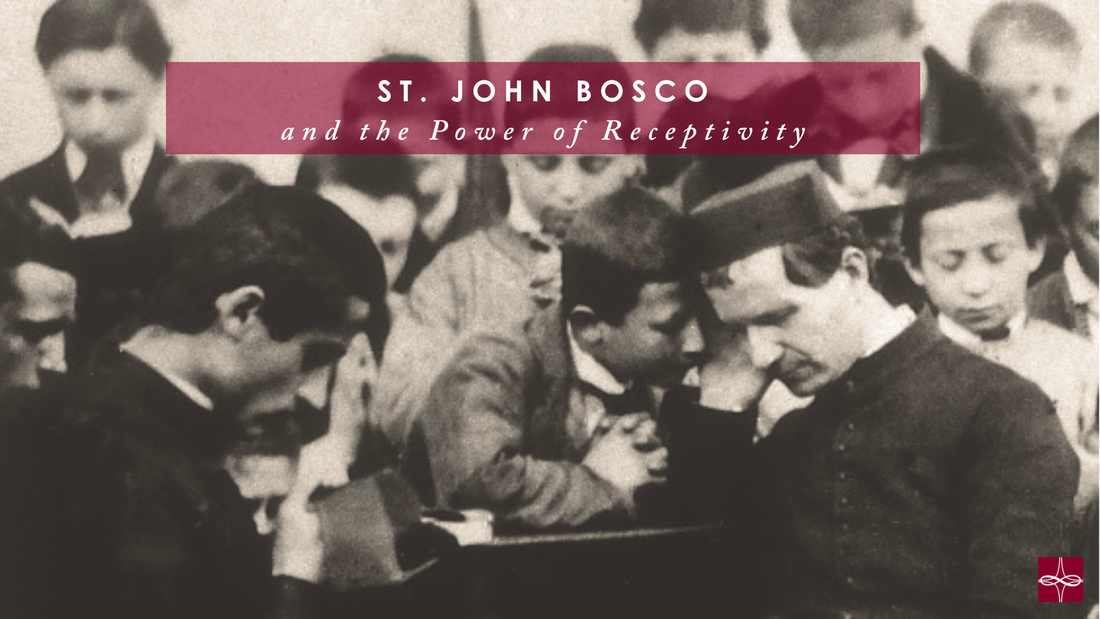

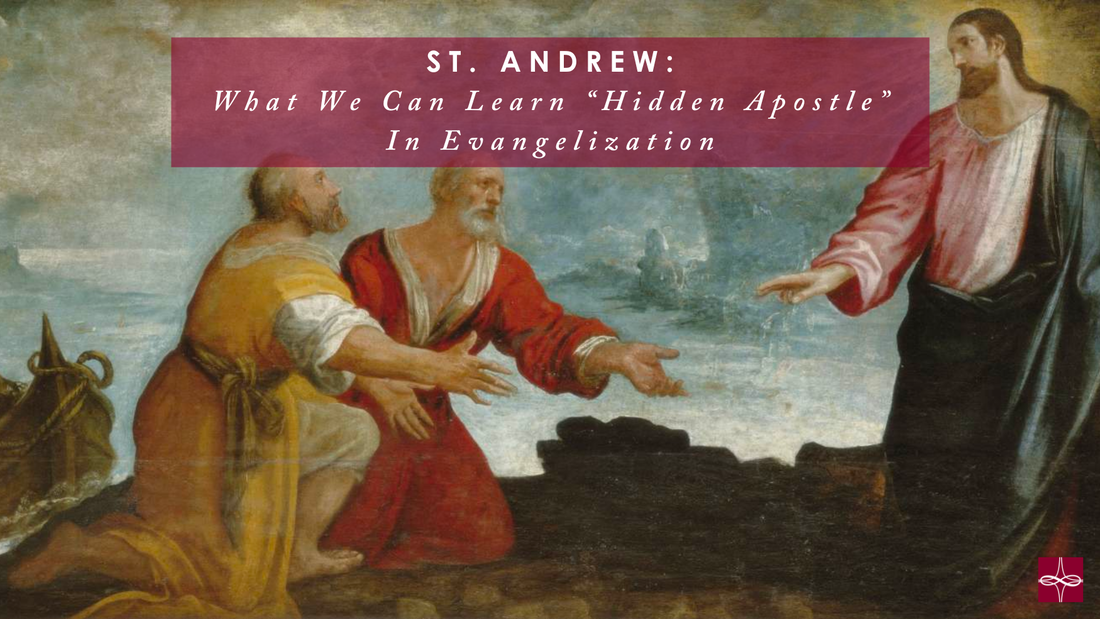
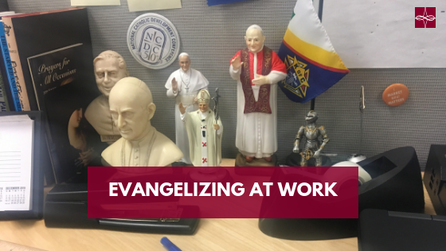
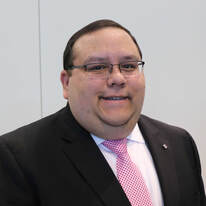


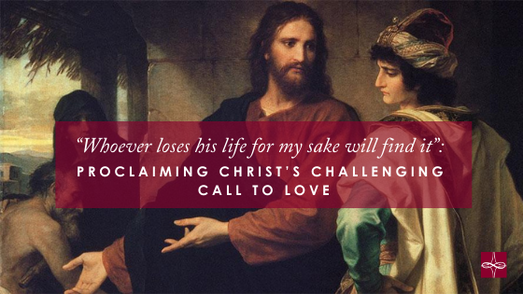







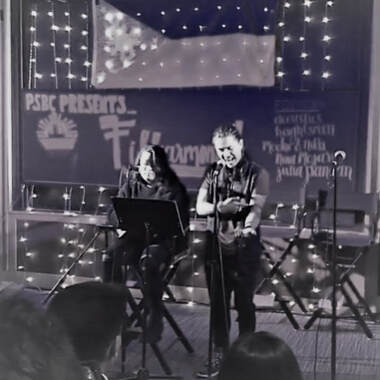

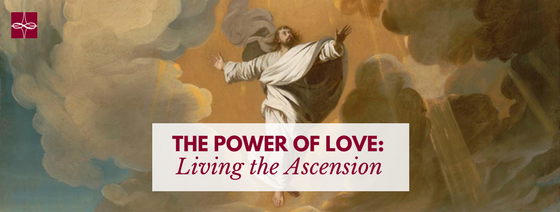

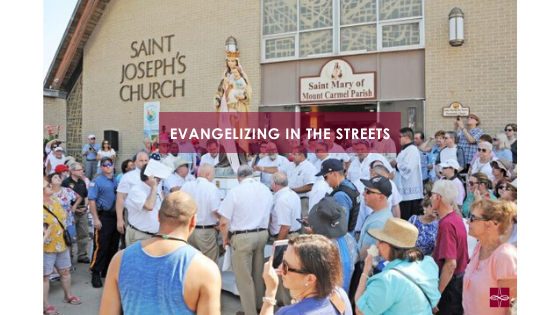
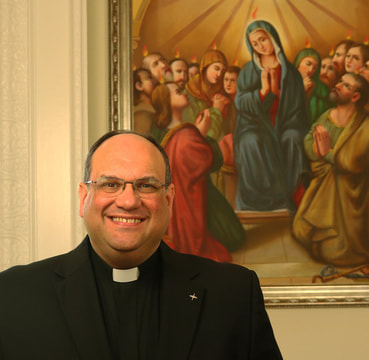
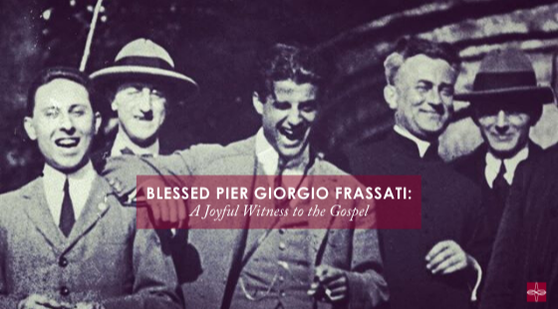

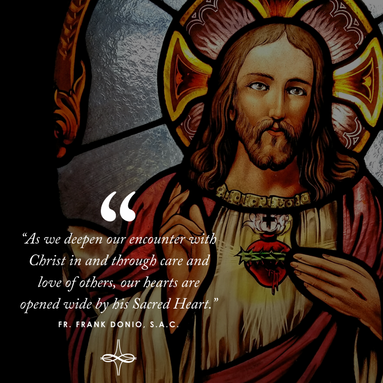
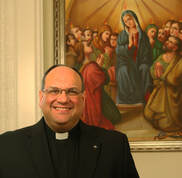
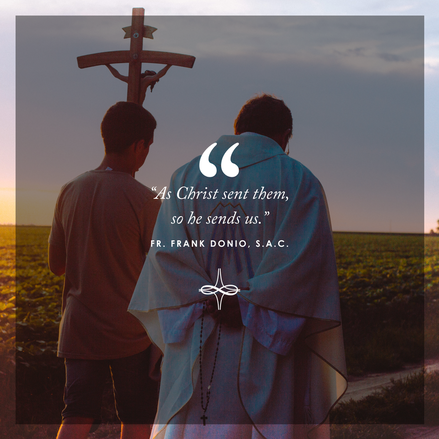
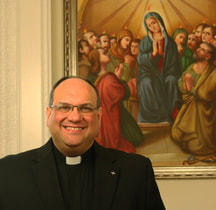
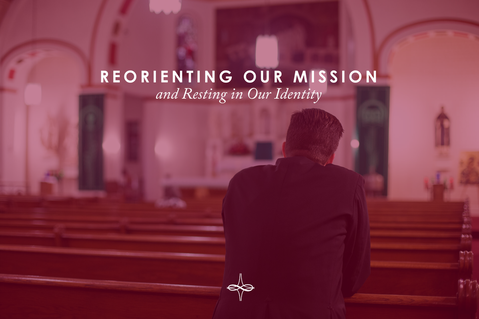
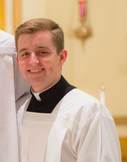

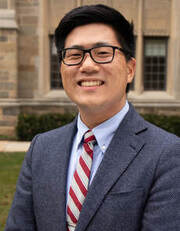
 RSS Feed
RSS Feed